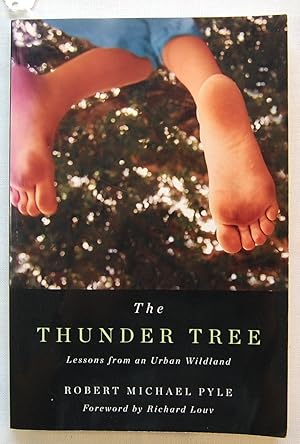Synopsis
A prolific naturalist author, Pyle narrates a tale which is part memoir and part ecological argument, advocating for his belief in the importance of the urban wild and forwarding the idea of "extinction of experience" when such places are unprotected in the midst of modern development. Alternating deeply personal anecdotes with local history, he uses the High Line Canal in Denver, Colorado as a microcosm in which to illustrate the intense informal utilization of near-urban countryside, defend that terrain as a modern form of Commons, consider the repercussions of growth on an inherently limited ecosystem, and reflect on the cultural aftermath when this unique terrain dwindles in the contemporary landscape. Annotation ©2011 Book News, Inc., Portland, OR (booknews.com)
From the Back Cover
When people connect with nature, they do so in a specific place, and The Thunder Tree shows how that connection can change a life forever, how roots in the earth can be as important as roots in a family. For Robert Michael Pyle, that place was the High Line Canal in Denver, Colorado, which he first discovered as a boy in the 1950s."From the time I was six," he writes, "this weedy watercourse had been my sanctuary, playground, and sulking walk. It was also my imaginary wilderness, escape hatch, and birthplace as a naturalist. Later the canal served as lover's lane, research site, and holy ground of solace."In this lyrical memoir and unforgettable portrait of place, Pyle argues eloquently that if we fail to preserve our opportunities to explore nature, we will diminish our lives and our culture immeasurably. (51/2 X 81/4, 240 pages)
"About this title" may belong to another edition of this title.

